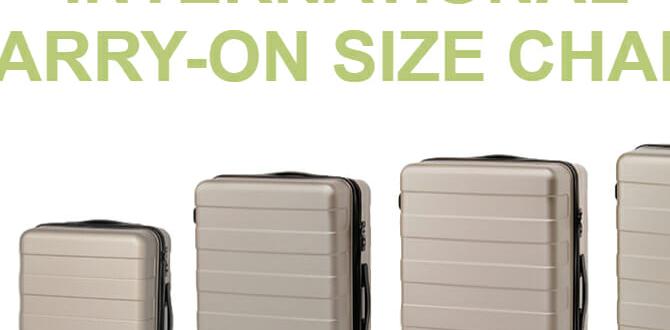Planning a trip to Bali? This essential travel guide offers top tips for a smooth and enjoyable island adventure, covering everything from packing and accommodation to exploring and staying comfortable. Get ready for your dream vacation with practical advice for every traveler.
Ah, Bali! The Island of the Gods calls to so many of us with its vibrant culture, stunning beaches, and lush landscapes. But planning a trip can sometimes feel a little overwhelming, right? Where do you start? How do you pack smartly? What are the must-dos, and how can you ensure comfort and peace of mind throughout your journey? If you’re dreaming of Bali but finding yourself unsure of the best way to navigate it all, you’re in the perfect spot. We’re here to break it down into simple, actionable steps, making your Bali adventure not just possible, but truly effortless and joyful. Let’s dive in!
Your Ultimate Bali Island Travel Guide: Essential Tips for a Dream Trip
Bali is a jewel in the Indonesian archipelago, captivating visitors with its unique blend of spiritual charm and tropical allure. Whether you’re a solo explorer seeking adventure, a family ready for unforgettable memories, or simply looking for a relaxing escape, Bali offers something special. As Michael C. Herrera, your guide from Journey Essentials, I’m thrilled to share the insider tips that will transform your Bali trip from a wish into a wonderfully executed reality. We’ll cover the essentials so you can focus on soaking up the magic of the island.
1. Pre-Trip Planning: Laying the Foundation for Fun
A little preparation goes a long way in ensuring a stress-free Bali getaway. Let’s get the foundational elements sorted so you can hit the ground running (or, more likely, lounging!).
Visas and Entry Requirements
Understanding visa requirements is crucial for a smooth entry. For many nationalities, a Visa on Arrival (VOA) is available, or you might be eligible for visa-free entry for short stays. Always check the latest regulations with the official Indonesian immigration website before your trip, as these can change. This ensures you have the correct documentation ready.
- Passport Validity: Ensure your passport is valid for at least six months from your date of arrival.
- Visa Requirements: Research if you need a visa based on your nationality. Options can include Visa on Arrival (VOA), tourist visas, or visa-free entry for select countries.
- COVID-19 Regulations: While many restrictions have eased, it’s wise to check for any residual health declarations or entry protocols.
Booking Flights and Accommodation
Booking in advance, especially during peak seasons, can secure better prices and ensure availability. Bali has a wide range of options, from luxurious resorts and private villas to charming guesthouses and budget-friendly hostels. Consider where you want to stay based on your interests:
- South Bali (Seminyak, Kuta, Canggu): Lively, great for surfing, dining, and nightlife.
- Ubud: Cultural heart, known for yoga, rice paddies, temples, and wellness retreats.
- North Bali (Lovina): Quieter, good for diving, dolphin watching, and a more relaxed pace.
- East Bali (Amed): Pristine beaches, excellent for diving and relaxation.
- Islands (Nusa Islands, Gili Islands): Accessible by boat, offering stunning beaches and snorkeling.
For peace of mind, especially when traveling with children or specific personal care needs, booking accommodations with good amenities and accessibility is key. Many places offer family rooms or can arrange for necessary items.
Travel Insurance: Your Safety Net
This is non-negotiable! Travel insurance protects you against unforeseen events like medical emergencies, trip cancellations, lost luggage, or natural disasters. It’s a small price to pay for significant peace of mind, allowing you to explore Bali’s beauty without constant worry. Always opt for a policy that covers medical evacuation if you plan on adventurous activities like hiking or diving.
For reliable travel insurance options, platforms like World Nomads offer comprehensive coverage for adventurous travelers, or consider local providers that cater to your specific needs.
2. Packing Smart for Bali: Essentials for Comfort and Convenience
Packing for a tropical climate like Bali is all about light, breathable clothing and essentials that make your journey smoother, especially if you need specialized comfort items.
Clothing for the Tropics
Think light, airy, and comfortable. Cotton, linen, and quick-dry fabrics are your best friends. Remember to pack modest clothing for visiting temples.
- Lightweight Tops and T-shirts: Plenty of options for daily wear.
- Shorts and Skirts: Comfortable for the heat.
- Long Pants or Maxi Skirts/Dresses: Essential for temple visits and cooler evenings.
- Swimwear: For beaches and hotel pools.
- Rain Jacket or Poncho: Evenings can be cooler, and sudden downpours are common.
- Comfortable Walking Shoes/Sandals: You’ll be doing a lot of exploring. Water shoes can be useful too.
- A Light Scarf or Sarong: Versatile for modesty, sun protection, or as a beach cover-up.
Health and Personal Care Essentials
Beyond the usual toiletries, consider items that enhance comfort and preparedness, especially for long travel days or specific personal needs.
- Sunscreen, Hat, and Sunglasses: The tropical sun is strong.
- Insect Repellent: Especially for evenings and jungle areas.
- Basic First-Aid Kit: Including bandages, antiseptic wipes, pain relievers, and any personal medications.
- Hand Sanitizer: For on-the-go cleanliness.
- Travel-Sized Toiletries: To save space.
- Personal Care Items: For those who require them, such as adult diapers or child diapers, packing a sufficient supply that is discreet and comfortable is vital for stress-free travel. Brands like Depend offer a range of absorbent products that can provide security and comfort during flights or long days exploring. For parents, ensuring you have enough child diapers and wipes accessible in your carry-on is a lifesaver.
Must-Have Travel Accessories
These items can make a significant difference in your travel experience.
- Universal Travel Adapter: Indonesia uses Type C and Type F plugs.
- Power Bank: To keep your devices charged on the go.
- Reusable Water Bottle: Stay hydrated and reduce plastic waste.
- Daypack: For carrying essentials during day trips.
- Travel Pillow and Eye Mask: For comfortable flights.
- Waterproof Phone Pouch: Protect your phone near water.
3. Navigating Bali: Getting Around the Island
Part of the Bali experience is exploring its diverse regions. Here’s how to get from point A to point B comfortably and affordably.
Transportation Options
Bali offers several ways to get around, each with its pros and cons.
| Option | Pros | Cons | Best For |
|---|---|---|---|
| Scooter/Motorbike Rental | Affordable, flexible, allows access to remote areas. | Requires an international driving permit, traffic can be chaotic, safety concerns. | Experienced riders, short distances, exploring rural areas. |
| Ride-Hailing Apps (Gojek/Grab) | Convenient, affordable, easy to book, fixed prices. | Availability varies by region, some areas have restrictions. | Short to medium distances, city navigation, solo travelers. |
| Private Driver/Tour Guide | Comfortable, safe, knowledgeable guides, great for day tours, family-friendly. | More expensive than other options. | Day trips, exploring multiple sites, families, those seeking comfort and local insights. |
| Taxis (Blue Bird Group) | Reliable, metered fares, readily available in tourist areas. | Can be more expensive than apps for longer distances. | Airport transfers, convenient short trips. |
| Island Hopping Ferries/Fast Boats | Access to nearby islands like Nusa Penida or the Gili Islands. | Can be rough seas, schedules can change, potential for delays. | Traveling to offshore islands. |
For longer journeys or when traveling with family and luggage, a private driver offers the best balance of comfort and efficiency. If you’re traveling with children and require extra space or specific seating arrangements, discuss this with your driver beforehand. For adults who might need discreet assistance during longer journeys, ensure you have your personal care items readily accessible and comfortable, like those from TENA, which are designed for discretion and maximum absorbency.
International Driving Permits (IDP)
If you plan to rent a scooter or car, you must have an International Driving Permit (IDP) along with your home country’s license. Without it, you risk hefty fines and your travel insurance may be invalidated. You can obtain an IDP from authorized organizations in your home country before you leave.
4. Experiencing Bali: Key Activities and Cultural Etiquette
Bali is rich in experiences, from spiritual sites to culinary delights. Respecting local customs will enhance your interactions and enjoyment.
Must-See Attractions and Activities
Bali offers a diverse range of experiences for every traveler.
- Ubud’s Cultural Heart: Visit the Sacred Monkey Forest, explore the Tegalalang Rice Terraces, and immerse yourself in Balinese dance performances.
- Temples: Explore iconic sites like Tanah Lot (sunset views), Uluwatu Temple (cliffside temple with Kecak dance), Tirta Empul (holy water temple), and Besakih Temple (Mother Temple). Remember to dress modestly – sarongs are usually rentable or included at larger temples.
- Beaches: Relax on the sandy shores of Seminyak, surf the renowned breaks of Canggu, or escape to the pristine waters of Nusa Penida.
- Water Sports: Try surfing, snorkeling, diving, or paddleboarding in areas like Amed, Sanur, or along the Nusa Islands.
- Volcanoes: Hike Mount Batur for a spectacular sunrise view (an early start is required!).
- Wellness and Yoga: Bali is a global hub for yoga and wellness retreats, particularly in Ubud.
Cultural Etiquette and Respect
Balinese culture is deeply rooted in Hinduism. Showing respect is key to positive interactions.
- Dress Modestly: Cover shoulders and knees when visiting temples and in more conservative areas.
- Use Your Right Hand: When handing over items or greeting someone, use your right hand. The left hand is considered unclean.
- Respect Local Ceremonies: If you encounter a procession or ceremony, observe from a distance and do not disrupt it.
- Temple Etiquette: Do not touch or sit on the offerings (canang sari). Avoid pointing your feet at people or sacred objects.
- Be Mindful of Noise: Especially in residential areas or near temples.
- Bargaining: It’s common in markets, but do so respectfully and with a smile. Know when to walk away if the price isn’t right.
5. Staying Healthy and Comfortable in Bali: Practical Tips
Keeping well and comfortable ensures you can make the most of your Bali holiday.
Food and Drink Safety
While Balinese food is delicious, it’s important to be mindful of hygiene.
- Drink Bottled Water: Always opt for sealed bottled water. Avoid ice in drinks unless you know it’s made from purified water.
- Eat at Reputable Establishments: Busy places, especially those popular with locals and tourists, are often a good sign of freshness and hygiene.
- Be Cautious with Street Food: While tempting, ensure it’s cooked fresh and served hot.
- Wash Your Hands: Regularly, especially before eating.
Managing Personal Comfort Needs During Travel
For travelers who need extra discretion and comfort, planning is key.
- Pack Appropriately: Bring an ample supply of any personal care items you use, such as adult or child diapers. It’s often easier and more reliable to pack what you know and trust from home. Look for products designed for discretion and absorbency, like those from NorthShore, which offers advanced protection for long-haul travel or extended excursions.
- Carry a Personal Care Kit: For longer excursions, keep a small, discreet bag with essentials like wipes, a change of product, and disposal bags. This ensures you can manage your needs comfortably and confidently wherever you are.
- Stay Hydrated: Crucial in tropical heat.
- Sun Protection: Reapply sunscreen often and stay in the shade during peak sun hours.
- Rest: Bali can be stimulating! Ensure you build in downtime to rest and recharge.
Emergencies and Health Services
Know where to go if you need medical attention.
- International Standard Hospitals: Bali has several reputable hospitals with international standards, particularly in the Denpasar and Kuta areas. Some well-known options include BIMC (BIMC Nusa Dua & BIMC Ubud), Siloam Hospitals, and Kasih Ibu General Hospital.
- Local Clinics (Puskesmas): For minor issues, local health centers offer basic care.
- Emergency Numbers: Save the local emergency number, 112, to your phone.
6. Budgeting for your Bali Adventure
Bali can be as budget-friendly or as luxurious as you make it. Understanding typical costs can help you plan effectively.
Typical Costs (Estimates Per Day Per Person)
These are rough estimates and can vary greatly based on your choices.
| Category | Budget Traveler (USD) | Mid-Range Traveler (USD) | Luxury Traveler (USD) |
|---|---|---|---|
| Accommodation | $15 – $40 (Guesthouses, Hostels) | $40 – $100 (Boutique Hotels, Villas) | $100+ (Resorts, Luxury Villas) |
| Food | $10 – $25 (Local Warungs, Street Food) | $25 – $60 (Mid-range Restaurants) | $60+ (Fine Dining, Hotel Restaurants) |
| Activities & Entrance Fees | $10 – $25 (Temples, basic tours) | $25 – $75 (Diving, tours with drivers) | $75+ (Private tours, exclusive experiences) |
| Transportation | $5 – $15 (Scooter rental, local transport) | $15 – $40 (Ride-sharing, occasional private driver) | $40+ (Full-time private driver) |
| Total Daily Estimate | $40 – $105 | $100 – $275 | $275+ |
Note: These figures exclude flights, visa fees, and travel insurance. Your spending on personal care items or specific comfort needs will be an additional, personal cost. Planning ahead for these necessities ensures you don’t incur unexpected expenses or compromise on your comfort.
Money-Saving Tips
- Eat Local: Embrace ‘warungs’ (small local eateries) for authentic and cheap meals.
- Bargain (Respectfully): In markets and for non-fixed price services, a little haggling can save money.
- Walk or Rent a Scooter: For short distances, these are the most economical transport options.







